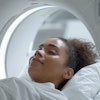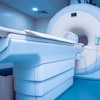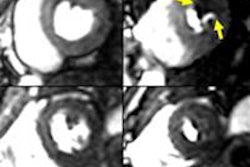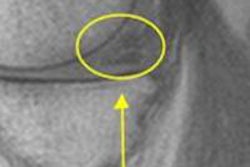Sunday, December 1 | 11:45 a.m.-11:55 a.m. | SSA14-07 | Room E451B
A preliminary study by Austrian researchers indicates that soft-tissue tumor biopsy can be performed accurately and safely using dynamic contrast-enhanced (DCE) 3-tesla MRI.The researchers from Medical University of Vienna and Vienna General Hospital also determined that diffusion-weighted imaging (DWI) was of limited value and multivoxel proton MR spectroscopy (MRS) shows promise in this clinical application.
The study prospectively evaluated 56 patients with suspected soft-tissue tumors. The participants underwent preoperative staging with 3-tesla MRI, followed by MR-guided core-needle biopsy. Surgical histology available for 54 patients revealed 53 soft-tissue tumors.
DCE-MRI was performed on 50 of the 53 patients, while DWI was used in 51 and MRS in 37 individuals.
DCE-MRI was heterogeneous in 42 cases, including all malignant tumors. In two cases, DWI was additionally used for targeting. A biopsy was taken in six cases that appeared homogeneous on all imaging sequences. Three small lesions required no region selection.
"Because DCE provides additional information on intratumoral differences in vascularity, the modality is especially useful in large and heterogeneous tumors, which are otherwise known to pose problems for image-guided biopsy," lead author Dr. Iris-Melanie Noebauer-Huhmann, from the university's department of biomedical imaging and image-guided therapy, told AuntMinnie.com.
DCE-MRI matched with preselected DWI regions in 87% of cases and with MRS in all assessable regions.
DWI was of limited value for selecting the biopsy area, according to the researchers. Spectroscopy could be compared with the DCE-MRI target region in 23 (62%) of 37 patients only.
As for the future, Noebauer-Huhmann said she and her colleagues want to "further determine the role of multivoxel [proton MRS] for MR-guided biopsy."
"We also want to test MR targeting by the use of PET/MRI, as soon as it is available in our clinic," she said.




















